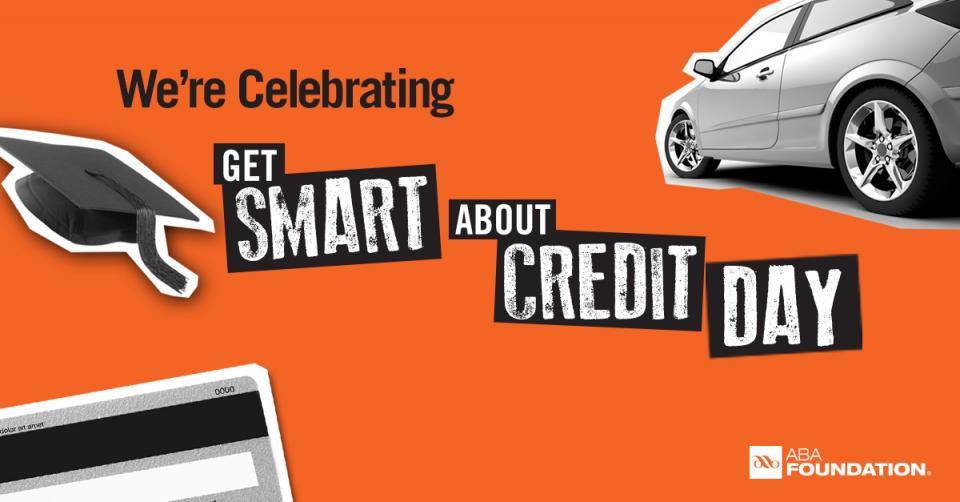Virginia Bankers Reach More than 5,800 Teens through ‘Get Smart About Credit’ Initiative and Financial Education Lessons
Bankers across Virginia teamed up with the American Bankers Association Community Engagement Foundation’s Get Smart About Credit program as part of an ongoing effort to raise awareness among high school students about the importance of personal finance skills.
Now in its 17th year, Get Smart About Credit is a national campaign of volunteer bankers who help young people understand credit and other important financial lessons. Virginia bankers utilized the program’s awareness day – Get Smart About Credit Day – held Thursday, October 17, as an opportunity to visit schools in their communities. Bankers presented lesson plans designed to help high school students learn how to pay for college, know and understand their credit scores, protect their financial identities and manage their money. Twenty-seven banks in Virginia made 231 presentations to more than 5,800 students.
“As these students prepare to head off to college or join the workforce, it’s critical they have a strong understanding of credit and other money management skills,” said Bruce Whitehurst, Virginia Bankers Association president and CEO. “We are also excited that this year’s Get Smart About Credit lessons included information on the wonderful career opportunities available in the banking industry.”
The Virginia Bankers Association offers these seven tips to help students shape their financial future:
- You are in charge. It’s your job to manage your money. Set yourself up for success by creating a realistic budget and sticking to it.
- Watch your spending. It all comes back to the simple lesson of needs vs. wants. Pace spending and increase saving by cutting unnecessary expenses like eating out or shopping so that your money can last throughout the school year.
- Use credit wisely. Understand the responsibilities and benefits of credit. How you handle your credit in college will affect you well after graduation. Shop around for a card that best suits your needs. Pay as much as you can, as soon as you can, and always pay by the due date.
- Utilize your bank services. Banks are more than money in a vault. They offer valuable services that students can benefit from like check cashing, debit cards, mobile and online banking, balance alerts, personal loans, direct deposit, financial education and identity theft protection.
- Be cautious when it comes to money. Don’t just trust anyone with your money. Be skeptical of classmates, friends or salespeople that have ideas for your money.
- Save, save, save! Things happen, and it’s important that you are financially prepared when your car or computer breaks down or any one of life’s unexpected emergencies occurs. No matter how small the amount you should start putting some money away immediately.
- Ask. This is a learning experience, so if you need help, ask. Your parents or your banker are a good place to start and remember – the sooner the better.
The following banks participated in this year’s Get Smart About Credit program:
- Atlantic Union Bank
- Bank of Botetourt
- Bank of Fincastle
- BB&T
- Benchmark Community Bank
- Burke & Herbert Bank
- Carter Bank & Trust
- Chain Bridge Bank
- Chesapeake Bank
- Citizens & Farmers Bank
- Essex Bank
- First Bank, Virginia
- First National Bank
- Fulton Bank
- Old Point National Bank
- Skyline National Bank
- Sonabank
- SunTrust Bank
- TD Bank NA
- The Bank of Southside Virginia
- The Farmers Bank of Appomattox
- TowneBank
- United Bank
- Village Bank
- Virginia Commonwealth Bank
- Virginia Partners Bank
- Wells Fargo
For more information about the VBA’s financial literacy efforts click here or to see photos from recent events click here.
# # #
About the Virginia Bankers Association
The Virginia Bankers Association represents banks of all sizes and charters and has served as the unified voice for Virginia’s $615 billion banking industry and its 42 thousand employees since 1893. To learn more about the VBA, click here.

